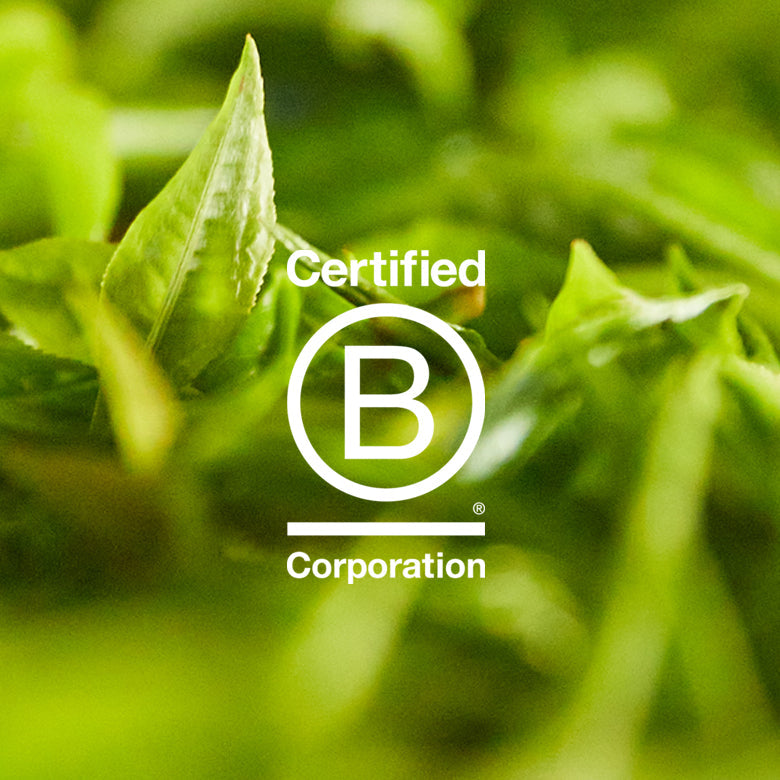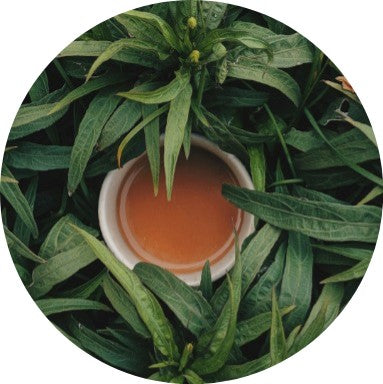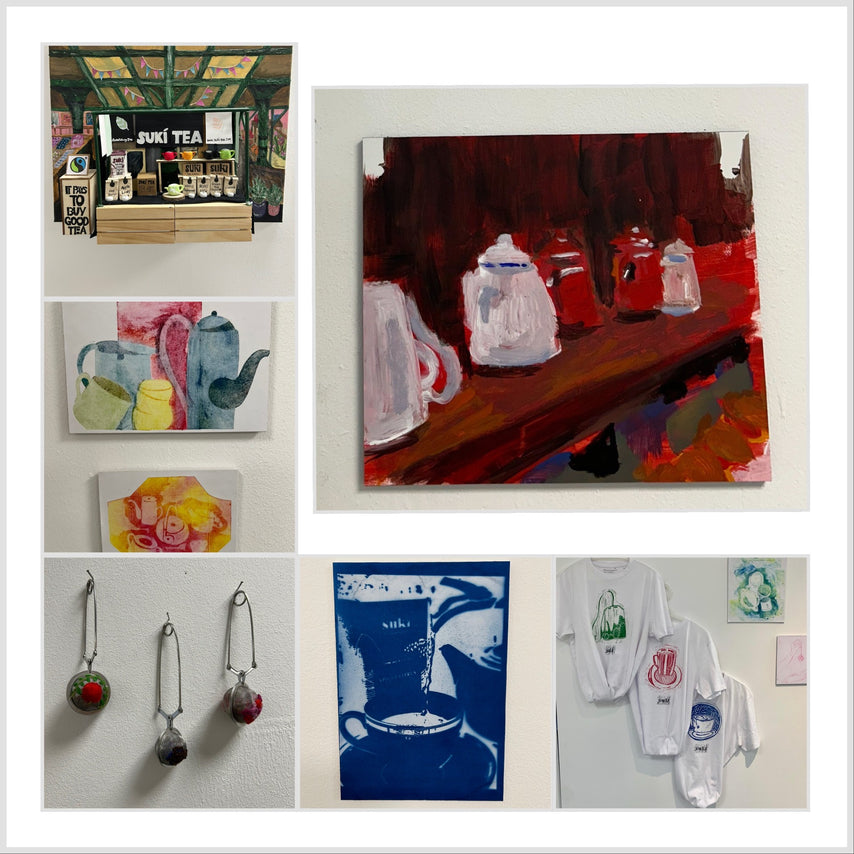Suki: Packaging and Sustainability explained
Many customers ask us about our tea and its packaging, whether it’s plastic-free and where it can be recycled, so we’ve answered all your questions in one place. We want to make it as easy as possible for you to know how to responsibly dispose of your SUKI packaging once you've enjoyed your favourite cup of tea.
Biodegradable vs Compostable: What’s the Difference?
There’s often confusion between the terms biodegradable and compostable, but they’re not quite the same.
Biodegradable materials break down naturally with the help of micro-organisms. However, this process can take years, and in some cases (like certain plastics) it results in microplastics, posing further environmental harm. Unfortunately, some brands use the term "biodegradable" to greenwash their products, which can mislead eco-conscious consumers.
Compostable materials, on the other hand, break down into natural elements, such as water, carbon dioxide and biomass and can be safely returned to the earth. They generally require specific composting conditions to break down efficiently. Some are suitable for home composting, but others need industrial composting environments (such as council or commercial food waste services).
Our Commitment to Sustainable Packaging
We’ve worked hard to ensure that Suki’s packaging is as environmentally friendly as the tea it holds. From 2025 onward, all our packaging is fully compostable. In addition, all our labels are now pre-printed as part of our latest rebrand, reducing material use and eliminating the need for additional adhesives.
Here’s a breakdown of each packaging element:
Loose Leaf Tea
Our loose leaf blends are 100% natural and suitable for home composting or disposal in your food waste bin.
Pyramid Tea Bags
Our pyramid tea bags are made from Soilon (a corn-starch-based material), paper, and yarn. They are completely plastic-free and industrially compostable, breaking down in as little as 12 weeks under the right conditions. While Soilon can be added to your home compost bin, it’s more effective in commercial composting systems.
These bags are fully compliant with EN13432 and carry the OK Compost certification.
Pyramid Envelopes
Our pyramid envelope wrappers currently contain a thin plastic lining. We’re actively working with our suppliers to source a sustainable alternative and are committed to eliminating this plastic layer as soon as possible.
Inner Retail Bags
These clear inner bags may look like plastic, but they’re actually Natureflex: a film made from cellulose derived from sustainably sourced wood pulp. They are both home and industrially compostable and certified with EN13432 and OK Home Compost standards.
Outer Retail Boxes
Our outer boxes are made from FSC- or PEFC-certified cardboard and printed locally in Northern Ireland. They are either pre-printed with vegetable-based inks or finished with paper-based labels, supporting our plastic-free goals. These boxes can be recycled via standard council recycling collections.
Foodservice & Large Bags
We’re especially proud of our new triple-layer compostable foodservice bags, they offer excellent protection for our teas while being kind to the planet. These bags are:
-
Industrially compostable in as little as 12 weeks
-
Home compostable in 12–26 weeks
-
Fully certified to EN13432 and OK Home Compost standards
Tin Tea Caddies
Our tin caddies are reusable, refillable, and feature a biodegradable seal and beautifully printed paper label. Once finished, simply remove the label and recycle the tin via your local recycling collection, tin is infinitely recyclable.
No Food Waste Collection? No Problem!
If your area doesn’t offer a food waste collection, why not start your own compost bin? Garden centres and DIY shops stock affordable compost bins that are easy to set up. Alternatively, contact your local MP to highlight the importance of sustainable waste systems.
Recycling guidelines can vary across the UK, so always check with your local council for accurate information. We’re fortunate that in Belfast and across Northern Ireland, residential food waste collections are widely available. At HQ, we’ve taken it one step further, our entire office, factory, and warehouse are now zero waste to landfill thanks to a new commercial waste service.
Still Have Questions?
We’re here to help! Drop us an email at queries@suki-tea.com, and one of the team will get back to you.



